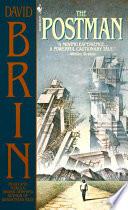
Source: The Postman (1985), Section 3, “Cincinnatus”, Chapter 14 (p. 267)
Variant: It is said that power corrupts, but actually it’s more true that power attracts the corruptible. The sane are usually attracted by other things than power.
As quoted in Values of the Wise: Humanity's Highest Aspirations (2004) by Jason Merchey, p. 120
This is very similar to the expression by Frank Herbert in Chapterhouse: Dune (1985): "All governments suffer a recurring problem: Power attracts pathological personalities. It is not that power corrupts but that it is magnetic to the corruptible. Such people have a tendency to become drunk on violence, a condition to which they are quickly addicted."
Context: It’s said that “power corrupts,” but actually it’s more true that power attracts the corruptible. The sane are usually attracted by other things than power. When they do act, they think of it as service, which has limits. The tyrant, though, seeks mastery, for which he is insatiable, implacable.
